© 2026 ALLCITY Network Inc.
All rights reserved.

That’s right, you’re about to read a punter film room, what that says about you, I’m not sure. What it says about us might be even more telling, but when we tell you we’re going to provide a film room for every new player the Denver Broncos add this offseason, we mean every new player. No exceptions.
As you’ve certainly heard already, the Broncos recently added former All-Pro punter and Oakland Raider Marquette King. It’s an important addition that allows them to follow through on their mantra of defense and ground control, because when you have a punter of King’s caliber, winning the position battle becomes a lot easier.
All of that is why we were excited to dig into the film on King, to see his booming leg and dancing antics at work, and to answer the real question here, how much of an upgrade is he really on Riley Dixon?
Let’s dig in.
STRENGTHS
It’s impossible not to notice King’s rocket launcher of a leg, which is amongst biggest in the league. Oakland’s No. 7 has a strong whipping action and a really huge leg that generates power in mere milliseconds to get the ball out.
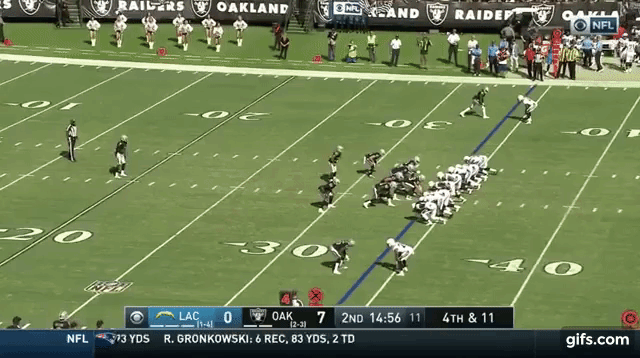
He can flip the field when pinned back in his own territory and simply asked to let it rip thanks to this. The former Raider regularly booted punts inside the opposing 20 from his own 20-yard line, a really valuable asset for an offense that won’t be elite. King averaged a spectacular 49 yards per punt when pinned back in his own 20, a full 2 yards more than Dixon averaged last season in such situations.
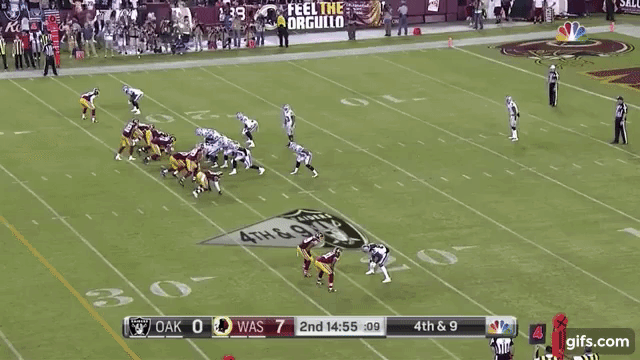
The hang time and height he gets on punts is unreal, they disappear off camera and drop down from the sky. Per Pro Football Focus, his 5.41 hang time was fourth best amongst punters last year, while Dixon’s 4.96 average was 27th.
King’s drops are very tight and smooth, as the ball transitions from his hand to his leg in the blink of an eye, which is a big part of what makes him so special. It should come as no surprise then, that he’s been blocked only three times in his career, and never the last two seasons. His technique is very consistent.
The Fort Valley State product is a very talented directional kicker, as he puts nasty spin on the ball. The spin he puts on punts is air bending type stuff and has, in part, led to plenty of muffed punts. In the first four games we watched, he forced five muffs.
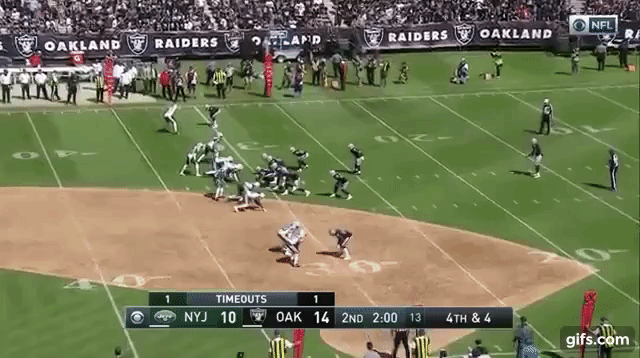
All that put together makes him lethal, as the distance King puts on punts forces returners to back up, the height he gets makes the ball drop out of the air, and then the spin makes his punts very hard to handle.
He’s also very good when asked to pin teams back inside their 20 when closer to midfield, as he’s accurate too.
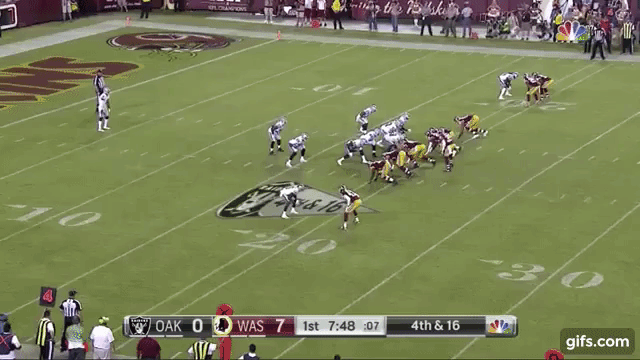
One thing that doesn’t get talked about much is the confidence with which Marquette kicks, he simply isn’t afraid of elite returners as he can boot it so far that he makes life miserable with his spin and direction.
He’s often been one of the Raiders’ game-ball worthy players and even compared to Hall of Famer Ray Guy.
WEAKNESSES
Because of his leg, King doesn’t necessarily approach things like other punters. He doesn’t always aim to go out of bounds, nor does he have many downed kicks. He dares returners to make bad decisions, and while this mostly works out, King maybe trusts his leg too much at times.
While he’s a very consistent punter, he will have a few line drives, which can cause him to get in trouble when he’s so confident and dares returners.
Comparing him to Dixon, he’s obviously older and not nearly as big. He also doesn’t have the ability Dixon has to execute fake punts—an area in which the Broncos young punter wasn’t used nearly enough.
Maybe King’s biggest weakness and a possible reason he was let go by the Raiders, is his antics on the field that have led to penalties in the past. With only a few opportunities every game to leave his mark, he can’t be getting flagged, plain and simple.
IN CONCLUSION
Dixon was picked up as a much cheaper option to Britton Colquitt, which shouldn’t be forgotten. Now only two seasons later, the Broncos have managed to get a younger, better, and more importantly cheaper alternative to Colquitt, all while having to commit fewer contract years to King.
When you look at the transaction that way, it’s a hell of a deal for Denver, as they’re only paying King $2 million per season, making him the 15th-highest paid punter in the league, when he’s clearly a top-five player—at the very worst—at his position.
At altitude, King should be that much more dangerous, something he explained himself here. Just look at this 68-yard bomb he unleashed at Mile High and think of what he could do regularly with the Orange and Blue.
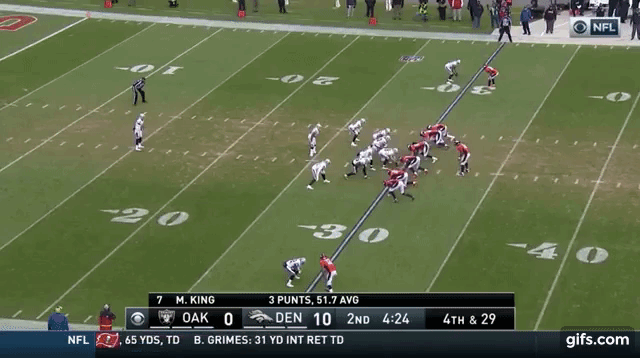
Sure, he’s only a punter, but King is pretty special at what he does, and he should make the special teams unit must-see TV all of a sudden.
Comments
Share your thoughts
Join the conversation



